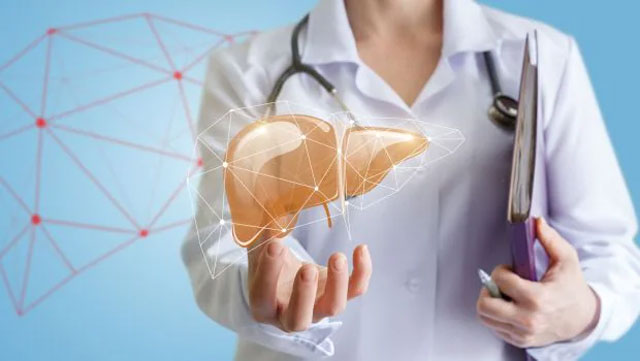More than 100 million Americans — roughly one in four people — are living with fatty liver disease (MASLD, formerly known as NAFLD), according to the American Liver Foundation. Even more alarming, cases among children have nearly doubled in the last two decades, a trend experts say is largely driven by the Western diet — high in processed foods, sugar, and unhealthy fats.
“Your liver is one of the hardest-working organs in your body. It filters everything you eat, drink, and breathe,” says Dr. Joseph Salhab, a Florida-based gastroenterologist. “When it’s overloaded with calories, sugars, and processed fats, fat begins to accumulate inside liver cells — and that can eventually lead to liver inflammation or even scarring.”
The good news? You can snack your way toward better liver health — as long as you choose wisely. Dr. Salhab shared six of his favorite go-to snacks that are not only tasty but also support a healthy liver and gut.
- Dates + Walnuts
Got a sweet tooth? Skip the candy bars. “Dates are an antioxidant powerhouse,” Dr. Salhab says. “I usually pair them with walnuts, which are rich in omega-3 fatty acids, for a quick and healthy snack.” The omega-3s in walnuts help reduce inflammation and oxidative stress, while dates provide natural sweetness and fiber. Together, they create a balanced, nutrient-dense treat that satisfies sugar cravings without harming your liver.
- Sauerkraut + Fermented Pickles
If you crave something tangy, try a probiotic combo of sauerkraut and naturally fermented pickles. The key, Dr. Salhab says, is to avoid pickles made with vinegar. “Fermented pickles made with salt and water encourage the growth of beneficial bacteria — probiotics — that support gut health and reduce fatty liver risk.” Probiotics help restore the gut microbiome, which in turn plays a crucial role in regulating liver fat and inflammation.
- Mixed Nuts + Dark Chocolate
When the afternoon slump hits, Dr. Salhab grabs a handful of mixed nuts with dark chocolate. “Nuts are rich in vitamin E, which protects liver cells from oxidative damage. Dark chocolate contains flavonoids — antioxidants that also support liver function,” he explains. This combination not only satisfies snack cravings but provides healthy fats and antioxidants that protect the liver from stress and aging.
- Apples with Honey and Cinnamon
Yes, an apple a day might really keep liver troubles away. “Apples are a super fruit for both the gut and the liver,” says Dr. Salhab. He recommends adding a drizzle of honey and a sprinkle of cinnamon for flavor. The pectin in apples helps remove toxins from the digestive system, easing the liver’s workload, while cinnamon adds anti-inflammatory benefits.
- Avocado on Sourdough
Creamy, filling, and good for you — avocados are rich in vitamin E, fiber, and healthy fats that support liver cell regeneration. “Combine it with a prebiotic source like sourdough bread for a more satisfying, gut-friendly snack,” the doctor suggests. Research has shown that monounsaturated fats in avocado can help lower liver enzymes and reduce inflammation over time.
- Greek Yogurt with Berries
For something cool and refreshing, try Greek yogurt topped with fresh berries. “It’s a great combination of probiotics and antioxidant-rich fruit,” Dr. Salhab notes. Greek yogurt or kefir helps balance gut bacteria, while blueberries, raspberries, and strawberries are rich in anthocyanins — compounds known to protect liver cells from damage. Plus, this combo benefits brain and heart health, making it an all-around winner.
Lifestyle Still Matters
Dr. Salhab emphasizes that diet alone isn’t enough. “You can’t eat your way out of fatty liver if you’re sedentary,” he says. “Regular exercise, hydration, and avoiding excess alcohol are just as critical for maintaining a healthy liver.”
Bottom Line
Healthy snacking doesn’t have to be boring — or bad for your liver. With small, mindful changes and the right mix of nutrient-rich foods, it’s possible to protect your liver, support digestion, and feel better overall.
Disclaimer
This article is for informational purposes only and should not be taken as medical advice. Always consult your healthcare provider before making dietary or lifestyle changes.

